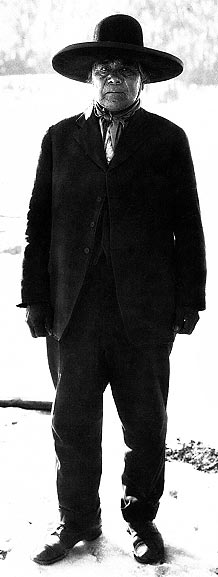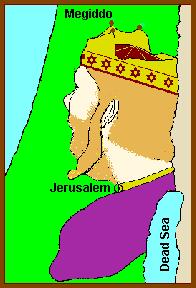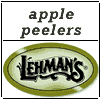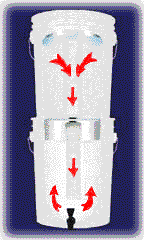"He Cannot Die in Battle"
A little-known sidelight connected with Braddock's defeat [referring to a
battle Washington fought in during The French and Indian War, under a British
General named Edward Braddock] was an "Indian prophecy" pronounced fifteen
years later by an aged Indian chief. In the fall of 1770, Washington and
several other men traveled to the Ohio to examine some of the western lands
that had been granted to colonial veterans of the French and Indian War.
During that journey the men were met by an Indian trader who "declared that
he was conducting a party which consisted of a grand sachem and some attendant
warriors; that the chief was a very great man among the northwestern tribes,
and the same who [had] commanded the Indians on the fall of Braddock....
Hearing of the visit of Colonel Washington to the western country, this chief
had set out on a mission, the object of which [he] himself would make known."32
After the two groups had arranged themselves around a council fire, the old
Indian rose and spoke to the group through an interpreter:
I am a chief, and the ruler over many tribes. My influence extends to the
waters of the great lakes, and to the far blue mountains. I have traveled
a long and weary path that I might see the young warrior of the great battle.
It was on the day when the white man's blood mixed with the streams of our
forest that I first beheld this chief. I called to my young men and said,
Mark yon tall and daring warrior? He is not of the red-coat tribe-he hath
an Indian's wisdom, and his warriors fight as we do-himself is alone exposed.
Quick, let your aim be certain, and he dies. Our rifles were levelled, rifles
which but for him knew not how to miss-'twas all in vain; a power mightier
far than we shielded him from harm. He cannot die in battle.
I am old, and soon shall be gathered to the great council fire of my fathers
in the land of shades; but ere I go there is something bids me speak in the
voice of prophecy. Listen! The Great Spirit protects that man, and guides
his destinies-he will become the chief of nations, and a people yet unborn
will hail him as the founder of a mighty empire!33
This excerpt was taken from the book The Real George Washington.
References
32. George Washington Parke Custis, Recollections and Private Memoirs of
Washington, ed. Benson J. Lossing (New York: Derby & Jackson, 1860),
p. 302.
33. Ibid., pp. 303-4. This incident was related personally by Dr. James Craik,
an eyewitness, to G.W.P. Custis, Martha Washington's grandson.




























